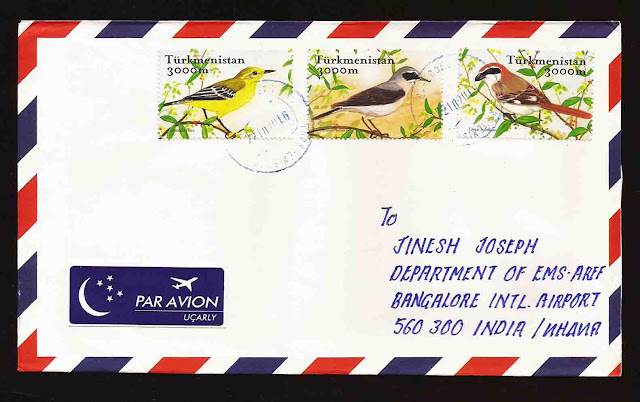Turkmenistan ; Turkmen: Türkmenistan/Түркменистан,) is a
sovereign country in Central Asia, bordered by Kazakhstan to the northwest, Uzbekistan to the north and east, Afghanistan to the southeast, Iran
to the south and southwest and
the Caspian Sea to the west. Ashgabat is the capital and largest city of the country. The
population of the country is 6 million, the lowest of the Central Asian
republics. Turkmenistan is one of the most sparsely populated nations in Asia.
Citizens of Turkmenistan are known as Turkmenistanis. Turkmenistan has been at
the crossroads of civilizations for centuries. In medieval times, Merv
was one of the great cities of the Islamic world and an important stop on the Silk Road, a caravan route used for trade with China
until the mid-15th century. Annexed by the Russian Empire in 1881, Turkmenistan later figured prominently
in the anti-Bolshevik movement in
Central Asia.
In 1925, Turkmenistan became a constituent republic of the Soviet Union, the Turkmen Soviet Socialist
Republic (Turkmen SSR); it became independent after the dissolution of the Soviet Union
in 1991.Turkmenistan possesses the world's fourth largest reserves of natural gas. Most of the country is
covered by the Karakum (Black Sand) Desert.
From 1993 to 2017, citizens received government-provided electricity, water and
natural gas free of charge. The sovereign state of Turkmenistan was ruled by President for Life Saparmurat Niyazov (also
known as Turkmenbashi) until his death in 2006. Gurbanguly Berdimuhamedow
was elected president in 2007 (he had been vice-president and then acting
president previously). According to Human Rights Watch,
"Turkmenistan remains one of the world’s most repressive countries. The
country is virtually closed to independent scrutiny, media and religious
freedoms are subject to draconian restrictions, and human rights defenders and
other activists face the constant threat of government reprisal." After
the suspension of the death penalty, the use of capital
punishment was formally abolished in the 2008 constitution.
The first stamps of Turkmenistan were issued
on 26 April 1992. Before then, Turkmenistan used stamps of the Soviet Union. Unlike
other ex-Soviet republics, Turkmenistan did not overprint Soviet stamps to meet their postal needs after
independence, although a number of overprints were carried out on Turkmenistan
stamps in 1992 and 1993. All postal activity is done with the state-owned
corporation Turkmenpochta which is under the rule of
the Ministry of
Communications. The Turkmenistan government exercises close control
over postal communications. Parcels and letters are routinely opened by customs
officials and delivery is unreliable. Businesses tend to use international
couriers such as Federal Express and DHL, although in 2005 these firms were
shut down by the government.
These covers sent back my very good friend Lola from Turkmenistan. It is one of the rare countries and the postal service will not allow irregular sized covers to be posted. Need to get special permission, or to put the covers inside the Govt. provided one after postmarking. I was trying to get a stamped and postmarked covers from Turkmenistan for a long time, but failed. The covers posted on October 22, 2016 and I received them on November 22, 2016.
The cover posted on 22 september 2016 and I received them on November 21, 2016.





No comments:
Post a Comment
Note: only a member of this blog may post a comment.